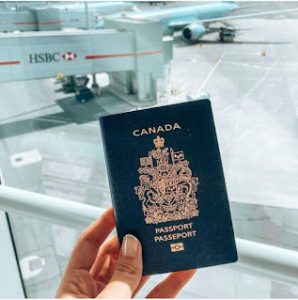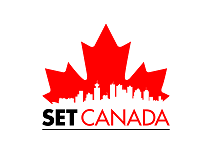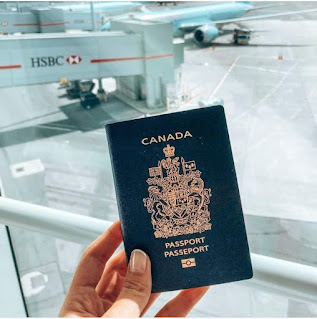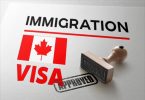Immigrating to Canada is a dream for many individuals seeking new opportunities, a better quality of life, and a welcoming multicultural society. Canada offers a range of immigration programs and pathways to attract skilled workers, entrepreneurs, students, and individuals seeking refuge. However, navigating the complexities of the immigration process can be challenging without proper guidance. In this guide, we provide answers to frequently asked questions about immigration to Canada, addressing various aspects such as eligibility criteria, application procedures, programs for specific categories, family sponsorship, language requirements, job prospects, and more. Whether you’re exploring the Express Entry system, Provincial Nominee Programs, or family sponsorship, this comprehensive collection of questions and answers aims to help you gain a clearer understanding of the immigration landscape in Canada. Please note that immigration policies are subject to change, and it’s important to refer to official government sources for the most accurate and up-to-date information.

1. What are the immigration options available for Canada?
Canada offers various immigration programs, including the Express Entry system, Provincial Nominee Programs (PNPs), Family Sponsorship, and the Atlantic Immigration Pilot, among others.
2. What is the Express Entry system, and how does it work?
The Express Entry system is an online application management system used for economic immigration programs. It consists of three main programs: the Federal Skilled Worker Program, the Federal Skilled Trades Program, and the Canadian Experience Class. Candidates create an Express Entry profile, receive points based on factors such as age, education, work experience, and language skills, and are then ranked in the Comprehensive Ranking System (CRS). The highest-ranking candidates receive Invitations to Apply (ITAs) for permanent residency.
3. What are the eligibility criteria for immigrating to Canada?
Eligibility criteria vary depending on the specific immigration program. However, common requirements include having a certain level of education, work experience, language proficiency (English or French), and good health and character.
4. How can I obtain Canadian permanent resident status?
There are multiple pathways to obtain permanent resident (PR) status in Canada, including through economic immigration programs, family sponsorship, refugee status, or humanitarian and compassionate grounds. Each pathway has its own set of requirements and application processes.
5. What are the different pathways to Canadian citizenship?
To become a Canadian citizen, you generally need to be a permanent resident, have lived in Canada for a certain period, meet language requirements, pass a citizenship test, and demonstrate knowledge of Canada’s rights, responsibilities, and history.
6. What documents and paperwork are required for the immigration application?
The specific documents and paperwork required depend on the immigration program you are applying for. Generally, you will need valid passports, educational credentials, language test results, work experience documentation, police certificates, and medical examinations.
7. How long does the immigration process usually take?
The processing time varies depending on the immigration program, the volume of applications, and individual circumstances. It can range from several months to over a year.
8. What is the point-based system in Canada’s immigration process?
Canada uses a point-based system to assess candidates for certain immigration programs, such as Express Entry. Points are awarded based on factors like age, education, language proficiency, work experience, and adaptability.
9. What is the Comprehensive Ranking System (CRS)?
The Comprehensive Ranking System (CRS) is a points-based system used in Express Entry. It ranks candidates based on factors like age, education, work experience, language proficiency, and other additional factors. Higher-ranking candidates have a better chance of receiving an Invitation to Apply (ITA) for permanent residency.
10. What are the language proficiency requirements for Canadian immigration?
Language proficiency is an essential factor in the Canadian immigration process. Candidates are usually required to demonstrate their language skills in English or French by taking approved language tests, such as the IELTS or CELPIP for English, or TEF for French.
11. What are the job opportunities and prospects for immigrants in Canada?
Canada offers diverse job opportunities and a strong labor market for immigrants. The country has a growing economy and a high demand for skilled workers in various sectors, including healthcare, technology, engineering, finance, and trades. Immigrants may also benefit from programs and initiatives aimed at supporting their integration into the Canadian workforce.
12. What are the education and credential assessment requirements?
Education and credential assessment is often required to determine the Canadian equivalency of foreign education credentials. Organizations like World Education Services (WES) or International Credential Assessment Service of Canada (ICAS) provide assessment services to evaluate education credentials for immigration purposes.
13. How does the Provincial Nominee Program (PNP) work?
The Provincial Nominee Program (PNP) allows Canadian provinces and territories to nominate individuals who have the skills and experience needed in their specific region. Each province or territory has its own PNP with unique criteria and streams. If nominated, candidates can apply for permanent residency through the PNP.
14. What are the healthcare and social benefits available to immigrants in Canada?
Permanent residents and Canadian citizens have access to Canada’s publicly funded healthcare system, known as Medicare. Social benefits, such as education, social assistance, and retirement benefits, are also available to eligible residents. However, benefits and eligibility may vary depending on the province or territory.
15. Can I bring my family members with me when I immigrate to Canada?
Yes, in most cases, you can sponsor eligible family members, including spouses or common-law partners, dependent children, parents, and grandparents, to immigrate to Canada. Family sponsorship programs allow eligible sponsors to reunite with their loved ones in Canada.
16. What are the costs associated with the immigration process?
The costs associated with the immigration process vary depending on the immigration program and the number of family members included in the application. Common fees include application processing fees, language test fees, medical examination fees, educational credential assessment fees, and fees for police certificates.
17. Can I study in Canada as an international student and eventually immigrate?
Yes, international students can study in Canada and potentially transition to permanent residency. The Canadian government provides pathways for international students to gain Canadian work experience and, in some cases, obtain a post-graduation work permit. This work experience can enhance their eligibility for immigration programs.
18. Are there any specific programs for entrepreneurs or investors to immigrate to Canada?
Yes, Canada has programs designed for entrepreneurs and investors. The Federal Startup Visa Program and various Provincial Entrepreneur Programs allow individuals with innovative business ideas or substantial investment capital to apply for immigration to Canada.
19. How does the sponsorship process work for family members?
The sponsorship process involves a Canadian citizen or permanent resident sponsoring eligible family members for immigration to Canada. Sponsors must meet specific requirements, and the process typically involves submitting an application, providing supporting documents, and demonstrating the ability to support the sponsored family members financially.
20. What is the Canadian government doing to support immigrants and facilitate their integration into society?
The Canadian government has various initiatives and programs to support immigrants and facilitate their integration into society. These include language training programs, settlement services, job search assistance, mentoring programs, and community support organizations. Additionally, Canada promotes diversity, multiculturalism, and equal rights for all residents.
21. What is the Canadian Experience Class (CEC)?
The Canadian Experience Class (CEC) is an immigration program under the Express Entry system. It is designed for individuals who have gained skilled work experience in Canada and wish to obtain permanent residency. Applicants must meet specific eligibility criteria related to work experience, language proficiency, and education.
22. Can I apply for immigration to Canada without a job offer?
Yes, it is possible to apply for immigration to Canada without a job offer. While some immigration programs, such as the Federal Skilled Worker Program, prioritize candidates with a valid job offer, there are other programs, like the Express Entry system, that do not require a job offer. Points are awarded based on various factors, and a job offer can boost a candidate’s CRS score.
23. Are there any age limits for immigrating to Canada?
There is no specific age limit for immigrating to Canada. However, age is a factor in the points-based system used in the Express Entry system. Points are awarded based on the age of the applicant, with higher points allocated to younger candidates.
24. Can I apply for immigration to Canada if I have a criminal record?
Having a criminal record can impact your eligibility for immigration to Canada. The Canadian immigration authorities conduct criminal background checks as part of the application process. Serious criminal offenses may result in inadmissibility. However, there are provisions for rehabilitation or individual circumstances that can be considered.
25. Are there any special programs for refugees to immigrate to Canada?
Yes, Canada has programs for refugees to seek protection and immigrate to the country. The Refugee and Humanitarian Resettlement Program provides options for refugees outside of Canada, while the In-Canada Asylum Program assists individuals who have already arrived in Canada and are seeking asylum.
26. Can I appeal a refusal of my immigration application?
Yes, in some cases, you can appeal a refusal of your immigration application. The process and availability of appeals vary depending on the type of application and the specific circumstances. It is advisable to consult with an immigration lawyer or a reputable immigration consultant to understand the options available to you.
27. Is it mandatory to hire an immigration consultant or lawyer?
Hiring an immigration consultant or lawyer is not mandatory, but it can be beneficial, especially if you have complex circumstances or if you are unfamiliar with the immigration process. They can provide guidance, help prepare your application, and navigate the requirements and procedures.
28. Can I apply for Canadian citizenship directly without first being a permanent resident?
Generally, you need to be a permanent resident of Canada before you can apply for Canadian citizenship. Permanent residents must meet specific residency requirements and spend a certain amount of time physically present in Canada before becoming eligible to apply for citizenship.
29. Are there any programs to attract skilled workers to specific provinces or territories in Canada?
Yes, several Canadian provinces and territories have their own immigration programs under the Provincial Nominee Program (PNP). These programs are designed to attract skilled workers and meet the specific labor market needs of each province or territory. Each program has its own eligibility criteria and selection process.
30. How often are the immigration rules and programs updated in Canada?
Immigration rules and programs can be updated periodically as per the discretion of the Canadian government. It is essential to regularly check official government sources, such as the Immigration, Refugees and Citizenship Canada (IRCC) website, to stay updated on any changes or new programs introduced in the immigration system.
31. What is the Parent and Grandparent Sponsorship Program?
The Parent and Grandparent Sponsorship Program is a program that allows Canadian citizens and permanent residents to sponsor their parents and grandparents for immigration to Canada. The program has a limited intake and operates on an invitation basis.
32. Are there any specific programs for skilled tradespeople to immigrate to Canada?
Yes, the Federal Skilled Trades Program (FSTP) is designed for skilled tradespeople who wish to immigrate to Canada. It targets individuals with experience in specific skilled trades occupations listed in Canada’s National Occupational Classification (NOC) system.
33. Can I include my common-law partner or same-sex partner in my immigration application?
Yes, Canada recognizes common-law partnerships and same-sex partnerships for immigration purposes. You can include your common-law partner or same-sex partner in your immigration application as a dependent or as a joint applicant, depending on the specific immigration program.
34. What are the language requirements for the Federal Skilled Worker Program?
The Federal Skilled Worker Program requires applicants to demonstrate proficiency in English or French. Language proficiency can be proven through approved language tests such as the IELTS (International English Language Testing System) or CELPIP (Canadian English Language Proficiency Index Program) for English, or TEF (Test d’évaluation de français) for French.
35. Can I apply for a work permit in Canada before obtaining permanent residency?
Yes, it is possible to apply for a work permit in Canada before obtaining permanent residency. There are various work permit categories available, such as the Temporary Foreign Worker Program (TFWP), International Mobility Program (IMP), and Post-Graduation Work Permit (PGWP) for international students.
36. Can I apply for Canadian citizenship if I have a disability?
Yes, individuals with disabilities can apply for Canadian citizenship as long as they meet the eligibility requirements outlined by the Government of Canada. The citizenship application process is the same for individuals with disabilities as for others.
37. Can I immigrate to Canada if I don’t have a university degree?
Yes, having a university degree is not mandatory for immigrating to Canada. While a higher level of education may provide additional points in the Express Entry system, there are other factors, such as language proficiency, work experience, and adaptability, that also play a significant role in the immigration process.
38. Can I change my immigration category or program after submitting an application?
Once an application is submitted, it is generally not possible to change the immigration category or program. It is important to carefully select the appropriate category and program that best aligns with your qualifications and intentions before submitting the application.
39. Are there any special immigration programs for international entrepreneurs?
Yes, Canada has programs aimed at attracting international entrepreneurs and business investors. Examples include the Start-up Visa Program, which targets innovative entrepreneurs with the support of designated organizations, and various provincial entrepreneur programs that cater to business establishment and investment.
40. How can I check the status of my immigration application?
You can check the status of your immigration application online through the Government of Canada’s official Immigration, Refugees and Citizenship Canada (IRCC) website. The website provides a secure portal called “Check Application Status” where you can track the progress of your application.
Navigating the immigration process to Canada can be a complex and sometimes daunting task. However, armed with knowledge and understanding of the frequently asked questions surrounding immigration, you can better prepare yourself for the journey ahead. In this guide, we have covered a wide range of topics, from eligibility criteria and application procedures to specific programs and pathways available for immigration to Canada. It is crucial to stay informed and up-to-date with the latest immigration policies and guidelines, as they may change over time. By utilizing official government sources and seeking professional advice when necessary, you can increase your chances of a successful immigration journey. Remember, Canada is known for its welcoming nature, diverse opportunities, and commitment to multiculturalism, making it an attractive destination for individuals looking to start a new chapter in their lives. With the right information and preparation, you can take steps towards achieving your immigration goals and embarking on a fulfilling future in Canada.






